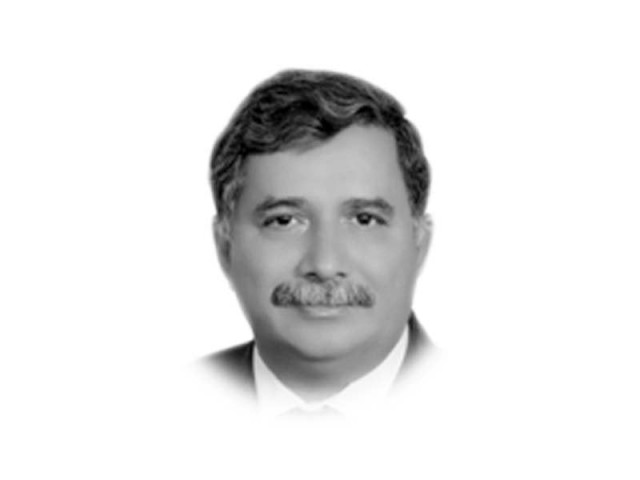Afghanistan’s peace and Kashmir
The statements linking the Afghan peace process with the resolution of the Kashmir issue have not gone well

The writer is a former secretary Home and Tribal Affairs Department and retired IG. He currently heads Good Governance Forum and can be reached at aashah7@yahoo.com
These views were strongly condemned by nationalist circles, as evidenced by the rejoinder of the Awami National Party (ANP). Even the Taliban appear averse to the suggestion. This became evident by the forceful statement issued by them, “Linking the issue of Kashmir with that of Afghanistan by some parties will not aid in improving the crisis at hand because the issue of Afghanistan is not related, nor should Afghanistan be turned into the theater of competition between other countries.”
The statements linking the Afghan peace process with the resolution of the Kashmir issue have not gone well with all those interested in peace in the region, particularly the Pashtuns. They believe that the conflict spread over 40 years has brought nothing but death, destruction and displacement to the whole region. The conflict has blocked opportunities for progress and development of the common people, while a few groups with vested interests have made fortunes out of the war economy.
While human rights violations are condemnable in Kashmir and elsewhere; Afghanistan and adjoining areas in Pakistan also suffer due to human rights violations as a result of the violent conflict. Enjoyment of fundamental rights is possible only in a peaceful environment. Any argument that links Kashmir with peace in Afghanistan will, therefore, be counterproductive to the issue of human rights in Kashmir. This also provides strength to the much-trumpeted theory of “strategic depth”, not liked by the people who have suffered enormously from the long-drawn ordeal.
The ongoing diplomatic parleys have not only rekindled hopes for peace but also opened chances for international trade with the Eurasian corridor to the benefit of Russia, Central Asia, Turkey, Iran, Pakistan and Afghanistan and will provide a boost to the manufacturing industries as well. Living in a complex inter-dependent world, all the countries sharing their experiences and engagements in trade can be in a win-win position.
On the other hand, in case of an interruption in the peace process, a new cycle of violence is likely to erupt inside Pakistan and Afghanistan. Organisations using Jihad as a slogan will find new motivation and momentum, thus radicalising the society further. All efforts made so far for de-radicalisation under the National Action Plan will go to waste and we would experience a serious drain on our meagre resources. The withdrawal of troops from the western border will undeniably benefit the militants, allowing them to secure social and physical space all over again.
Foreign Minister Shah Mahmood Qureshi — in his analysis of the situation — was right when he advised Pakistanis “not to live in a fool’s paradise”. In a further explanation, he opined that it would not be easy for Islamabad to get support from the UN Security Council as well as the Muslim world against India’s decision to revoke Jammu and Kashmir’s special status. Without pinpointing a particular country, he stated that the “guardians of the Ummah” might also not back Pakistan on the Kashmir issue due to their economic interest. “Different people in the world have their own interests. India is a market of [over] billion people. A lot of people have invested there [in India]. We often talk about Ummah and Islam but the guardians of Ummah have also made investments there [in India] and they have their own interests.” Seen in that backdrop, we have to be mindful of the dictates of realpolitik and assess our strengths and weaknesses while treading in the area of power politics.
Pakistan is neither a superpower nor an economic giant. The use of jihadis has not paid the dividends in the past and will not do so in the future either. It rather provided an opportunity to the opponents to paint Pakistan as a country supporting terrorist outfits, thus obscuring the case of human rights violations in Kashmir. In such a scenario, a bit of emotionalism is a natural phenomenon, however, sensible exercise of restraint and pragmatism is also essential.
We must realise that there is no quick fix to the long-drawn and complex issue. It therefore requires sagacity and statesmanship without recourse to any linkage policy. Not compromising on basic principles, we must also demonstrate that Pakistan is a peace-loving country that is eager to resolve conflicts through peaceful means with the support of the international community.
Pakistan should not give any heed to the views advocating opting out of the ongoing peace process in Afghanistan as it has given her considerable leverage and goodwill in the region. Not only will such a course be seen unfavourably in the region and in the West, it may also aggravate feelings of deprivation and humiliation among the youth in the region. Peace in Afghanistan must remain high on the agenda for the better future of the people across both sides of the border.
Published in The Express Tribune, August 21st, 2019.
Like Opinion & Editorial on Facebook, follow @ETOpEd on Twitter to receive all updates on all our daily pieces.















COMMENTS
Comments are moderated and generally will be posted if they are on-topic and not abusive.
For more information, please see our Comments FAQ